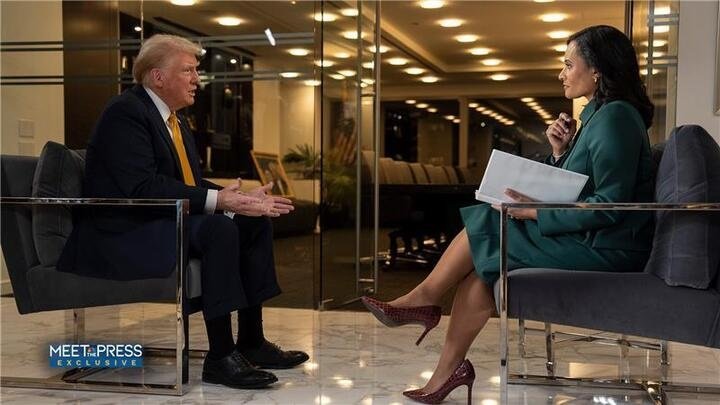14th Amendment
Trump’s Controversial Promise: Revoking Birthright Citizenship Despite Legal Concerns

WASHINGTON — President-elect Donald Trump has made headlines by asserting plans to eliminate birthright citizenship on his first day in office. During an interview on NBC’s “Meet the Press with Kristen Welker,” he expressed confidence in signing an executive order to end the constitutional right for anyone born in the United States to claim citizenship.
However, this ambitious policy faces constitutional challenges. Legal experts emphasize that Trump may not possess the authority to unilaterally revoke birthright citizenship, as amending the 14th Amendment would require extensive political processes, including a two-thirds majority in both the U.S. House and Senate.
“We have to end it,” Trump stated emphatically, describing the current situation as “ridiculous.” He elaborated further, saying, “We’re gonna have to get it changed,” referring specifically to the 14th Amendment, which was ratified in 1868 and guarantees citizenship to all born on U.S. soil.
The implications of halting birthright citizenship could be significant. Trump acknowledged the need to explore executive options, “if we can.” However, experts like Gerald Neuman from Harvard Law School assert that no president can undermine the established interpretation of the Citizenship Clause without legislative action.
While he aims to reshape immigration policy, Trump seems open to negotiating a plan for the “Dreamers,” the individuals currently protected under DACA, many of whom were brought to the U.S. as children. He described them as people who are now often linguistically disconnected from their countries of origin, indicating a potential willingness to collaborate with Democrats on their status.
On the topic of mass deportation, Trump reiterated his previous commitment to this policy, raising concerns about mixed-status families. “I don’t want to be breaking up families,” he asserted, emphasizing that if families cannot remain intact, they would have to be returned to their home countries together.
Welker pressed Trump about the implications of his policies for children born in the U.S. to undocumented parents, asking if they would also be included in future deportations. Trump’s response was noncommittal, focusing instead on the need for established rules and regulations regarding immigration.
Despite his assertions, Trump erroneously claimed that the U.S. is the only nation offering birthright citizenship. In reality, multiple countries worldwide, including Canada and Brazil, maintain this policy.
As discussions about the future of immigration in America unfold, the legality and practicality of Trump’s proposals remain subjects of significant debate.
Last updated 2:55 p.m., Dec. 9, 2024













![Yummy Noodles, Native Grill & Wings and Subway received favorable health inspections in April. [Bryan Mordt]](https://arizonanews.org/wp-content/uploads/2025/04/Clean-Streak-Maricopa-Restaurants-Serve-a-Steady-Stream-of-Excellence-80x80.png)



